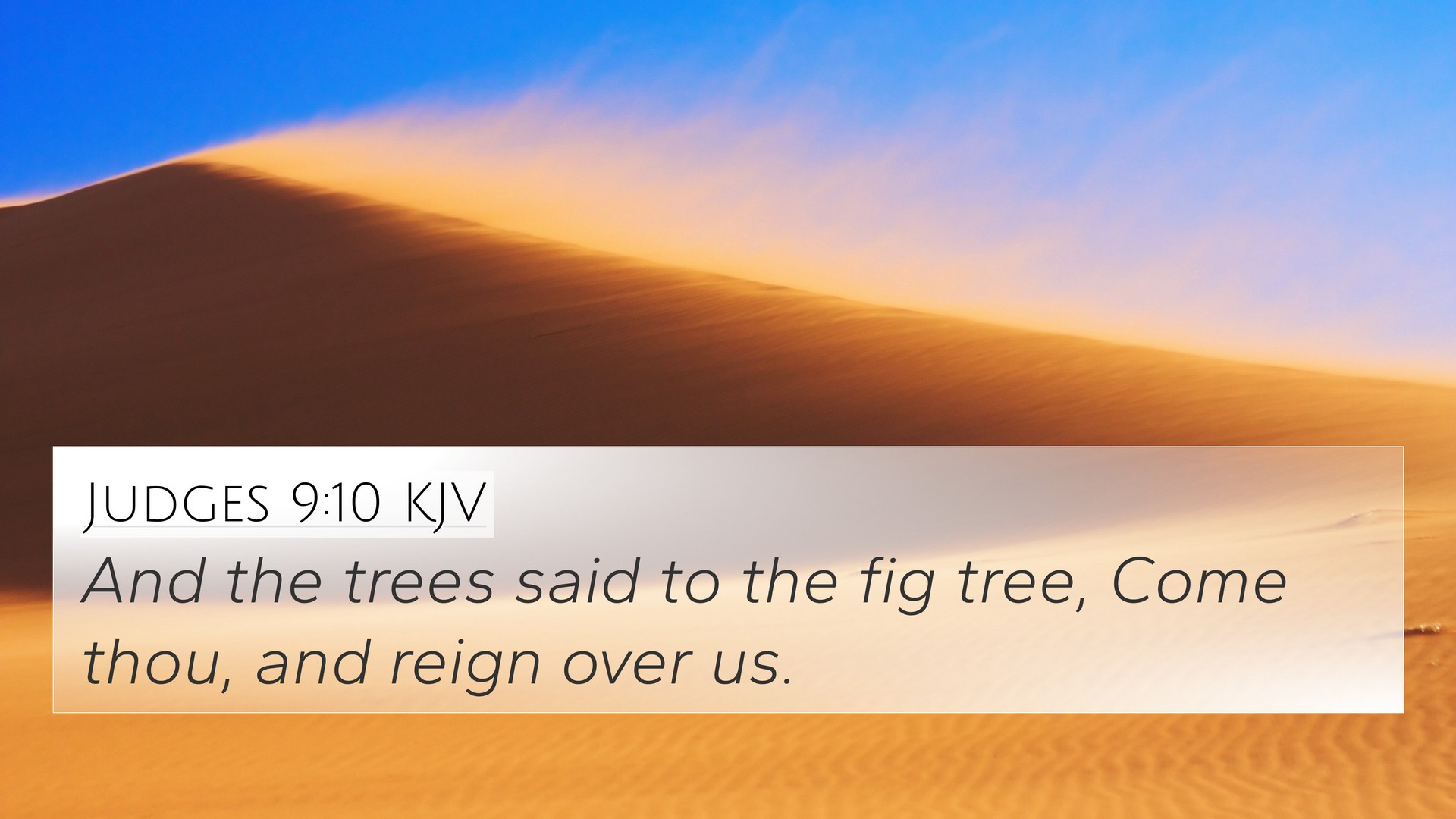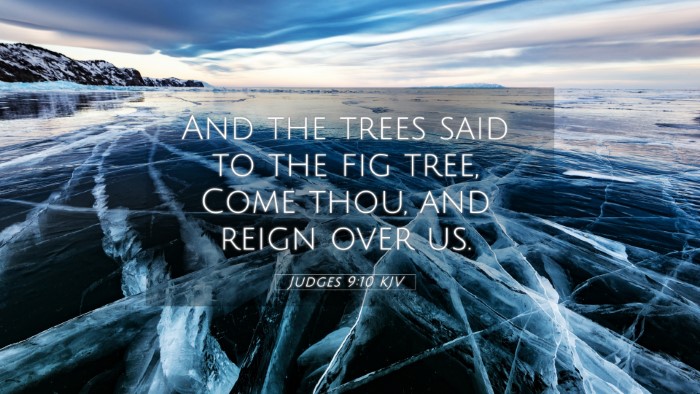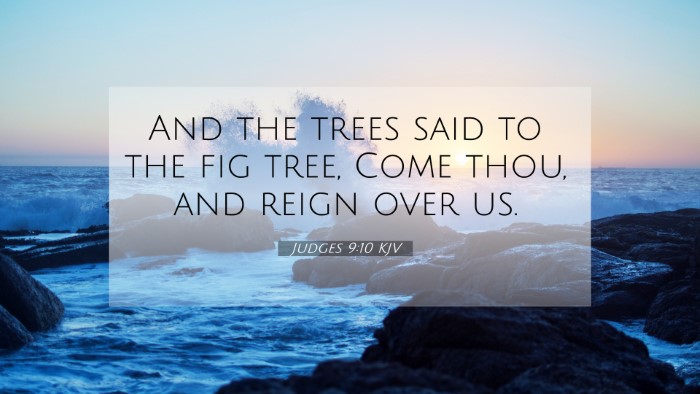Understanding Judges 9:10
The verse Judges 9:10 states: "And the trees said to the fig tree, Come thou, and reign over us." This verse is part of a parable that highlights the requests made by the trees, symbolizing a search for leadership and governance. The message carried within this verse contains multifaceted interpretations drawn from the public domain commentaries.
Commentary Insights
-
Matthew Henry's Commentary:
Henry notes that this passage illustrates the vain and whimsical nature of the trees seeking a king, suggesting that not all leaders are suitable for the role of governance. The trees personify human characteristics, showing a preference for grandeur over humility. The choice of the fig tree symbolizes a pursuit of something fruitful; however, it also poses a significant rhetorical question about the severity of leadership decisions.
-
Albert Barnes' Notes:
Barnes emphasizes the folly inherent in the trees' selection process, shedding light on the rejection of the nobler tree types (like the olive and the vine) for a ruler that may not fulfill their expectations. He discusses how this reflects the broader implications of human choices in leadership, often involving superficial judgments rather than intrinsic value. This commentary highlights a thematic connection to the importance of divine selection in judges and rulers.
-
Adam Clarke's Commentary:
Clarke suggests that the imagery of the trees seeking a king may also represent deeper theological insights regarding the leadership attributes desired by the people of Israel. He relates this to the eventual desire for a monarchy in Israel, portraying it as a step away from reliance on God. Clarke relates this to other scriptural accounts emphasizing God’s sovereignty and the dangers of human governance.
Bible Verse Cross-References
Judges 9:10 is interconnected with several other verses that provide additional layers of meaning and understanding. Here are some critical cross-references:
- 1 Samuel 8:5: The Israelites request a king to govern them, expressing dissatisfaction with God's leadership.
- Matthew 20:25-26: Jesus teaches about servant leadership, contrasting it with worldly expectations of authority.
- Isaiah 9:6-7: Prophecies concerning the true and righteous ruler, foreshadowing Jesus as the ultimate leader.
- Psalm 78:70-72: A recount of God's choice of leaders, showcasing divine selection over human desire.
- Proverbs 29:2: A proverb reflecting the necessity of righteous leadership for the welfare of a nation.
- Jeremiah 23:1-4: A warning against irresponsible shepherds and the promise of a new king who will care for the people.
- Luke 19:14: The citizens reject their king, which resonates with the sentiments seen in the trees' rejection process.
- Romans 13:1-2: A New Testament viewpoint on the authority of rulers and their connection to God’s will.
- Hebrews 5:4: Discusses the calling of leaders, emphasizing divine appointment versus self-selection.
- Acts 13:22: Reference to God’s selection of David as a king after His own heart, highlighting the importance of divine criteria.
Thematic Connections
This verse, and its interpretations, unfolds several important themes within the biblical narrative:
- Leadership and Governance: Reflects on human tendencies to select leaders based on superficial qualities, neglecting spiritual discernment.
- Divine Sovereignty: God's ultimate authority in leadership positions is contrasted with the often flawed human choices.
- Fruitfulness of Leadership: The fig tree's symbolism raises questions about what constitutes a fruitful and beneficial leadership.
- Human Desire versus God's Will: Showcases the struggle between societal desires for leaders and the divine will for leadership.
Applications for Cross-Referencing
To adequately apply the insights from Judges 9:10, it is essential to utilize various tools for effective cross-referencing of Bible verses:
- Bible Concordance: A valuable resource for finding related verses based on keywords.
- Cross-Reference Bible Study: Systems that allow for thematic or narrative connections across the scriptures.
- Bible Reference Resources: Various guides that aid in identifying related scripture passages.
- Comprehensive Bible Cross-Reference Materials: Utilize annotations and cross-references available in study Bibles for deeper understanding.
Conclusion
Judges 9:10 serves as an excellent example of the interwoven fabric of the biblical text, enabling us to explore deeper meanings through cross-referencing and thematic analysis. Understanding the relationships between Bible verses and their explorations enhances our insights into God's Word and aids us in navigating the complexities of leadership, governance, and divine will.


